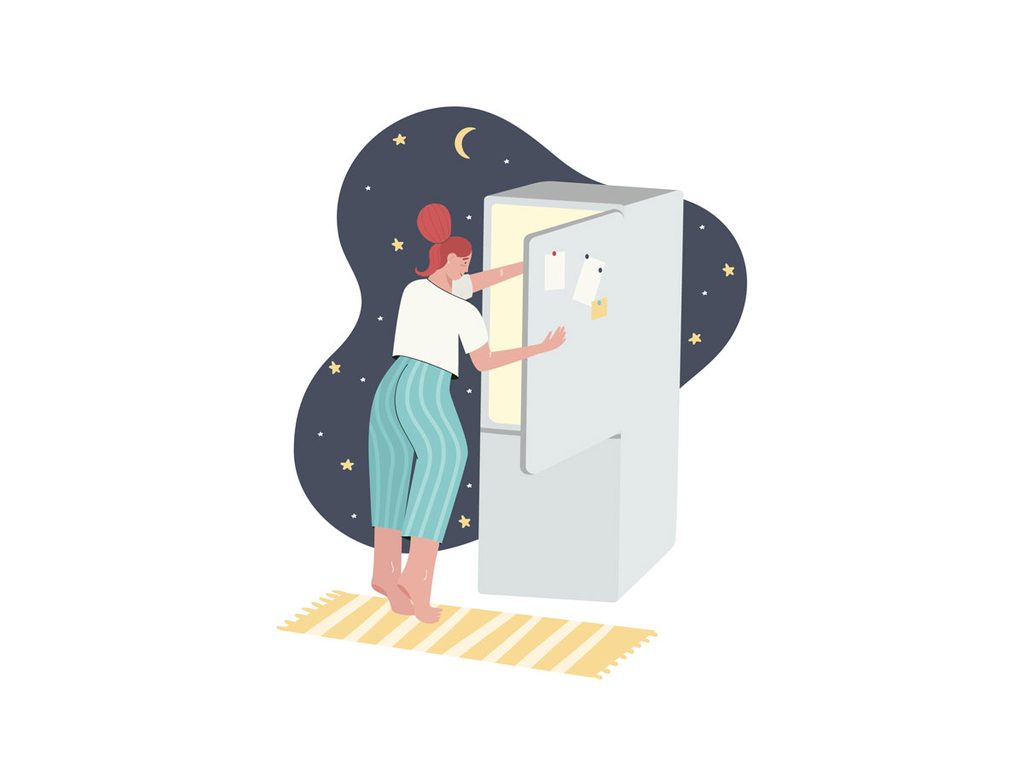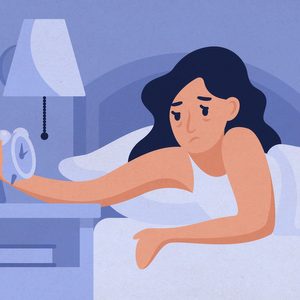The Trick to Stop Your Nighttime Stress-Eating Habit, According to Science

If you're stressed out during the day, you might be overeating at night. But there's an easy fix, according to research.
Your late-night eating could be packing on the pounds and generally wrecking your health, but if it’s related to work stress, the solution may be as simple as getting a good night’s sleep. That’s according to a two studies from Michigan State University researchers that were published together in 2017 in the Journal of Applied Psychology. The researchers examined the relationship between work-related stress, sleep quality, negative mood and eating behaviours by asking participants to keep records of all these things in diary form.
Although the two studies involved different sources of stress (the first involved jobs that were highly demanding, and the second involved mistreatment by customers), both showed that when employees experienced high levels of on-the-job stress in the morning, they tended to engage in stress-eating at night (i.e., overeating in unhealthy foods). However, those same employees reported less stress eating on days when they had had a good night’s sleep the night before.
The studies’ co-authors suspect that a good night’s sleep helps insulate people from the next day’s stressors. “We believe sleep can help workers to better deal with their daytime stress because sleep can help people feel vigorous and energetic,” says co-author Chu-Hsiang (Daisy) Chang, PhD.
Think of sleep as insurance against the effects of stress.
“People who don’t get enough sleep often overreact to stressors,” adds chiropractor Robert Oexman, director of the Sleep to Live Institute and member of the American Academy of Sleep Medicine. “While someone who got a full night’s sleep may not take something personally, someone who is tired will often have an altered perspective, which could lead to behavioural changes, such as not eating the right foods.” That’s a polite way of saying that daytime stress can turn you into a nighttime snack monster.
What’s more, when we don’t get enough sleep, it’s more difficult to make thoughtful decisions about food, according to Kimberly Hershenson, LMSW, a NYC-based therapist specializing in eating disorders and body image. So if you know that work is stressful, and there’s nothing you can do about it, the solution comes down to three words, advises Liza Baker, a health coach at Simply Health Coaching: “Go. To. Bed.”
But how early? And how much sleep is enough?
Dr. Chang points out that these studies looked only at “sleep quality” (i.e., how well one sleeps) rather than quantity, so the results don’t lend themselves to a specific sleep Rx. Conventional wisdom prescribes seven hours of sleep per night for adults, but Baker believes that “each of us is unique and therefore requires different amounts of sleep for optimal health.” She advises her own clients to determine their optimal sleep time by tracking the time they spend sleeping on the nights they don’t have to set an alarm to wake up.







